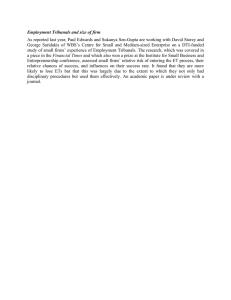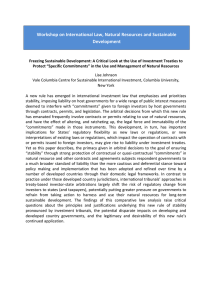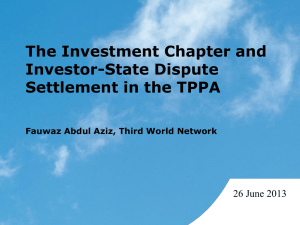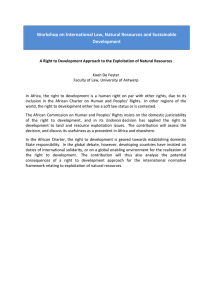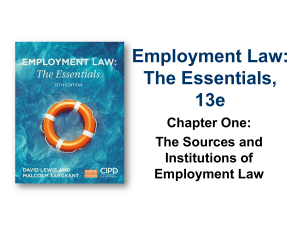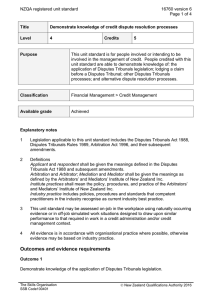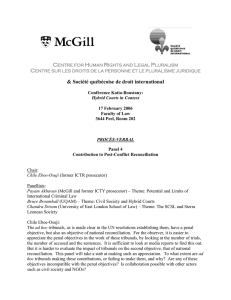Workshop on International Law, Natural Resources and Sustainable Development
advertisement
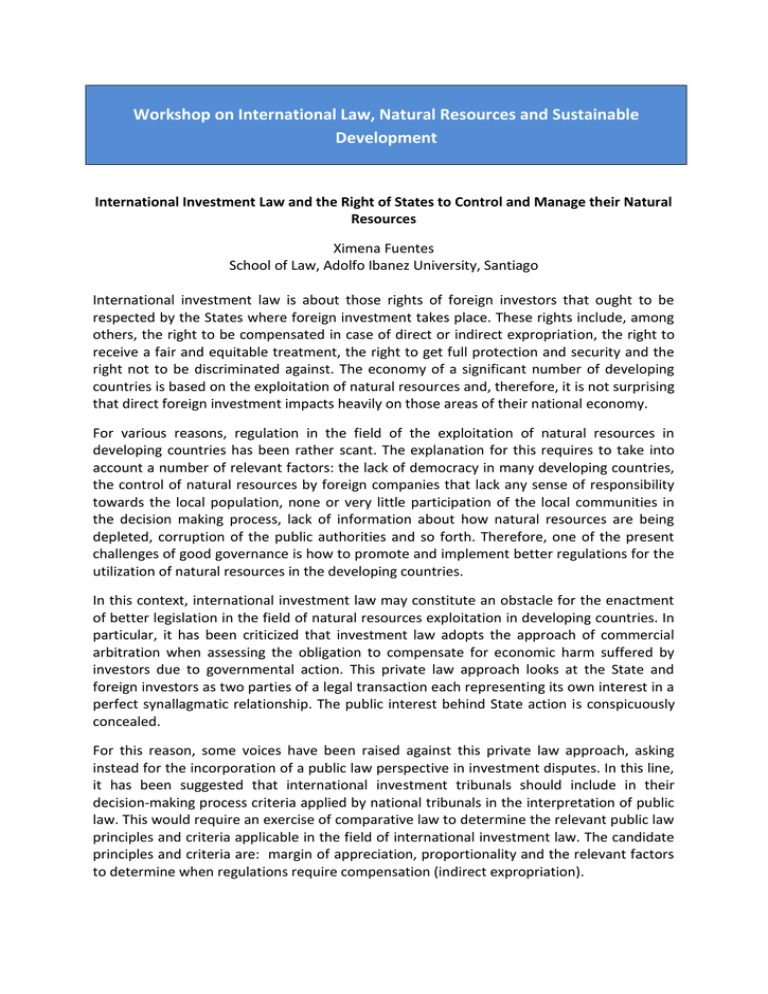
Workshop on International Law, Natural Resources and Sustainable Development International Investment Law and the Right of States to Control and Manage their Natural Resources Ximena Fuentes School of Law, Adolfo Ibanez University, Santiago International investment law is about those rights of foreign investors that ought to be respected by the States where foreign investment takes place. These rights include, among others, the right to be compensated in case of direct or indirect expropriation, the right to receive a fair and equitable treatment, the right to get full protection and security and the right not to be discriminated against. The economy of a significant number of developing countries is based on the exploitation of natural resources and, therefore, it is not surprising that direct foreign investment impacts heavily on those areas of their national economy. For various reasons, regulation in the field of the exploitation of natural resources in developing countries has been rather scant. The explanation for this requires to take into account a number of relevant factors: the lack of democracy in many developing countries, the control of natural resources by foreign companies that lack any sense of responsibility towards the local population, none or very little participation of the local communities in the decision making process, lack of information about how natural resources are being depleted, corruption of the public authorities and so forth. Therefore, one of the present challenges of good governance is how to promote and implement better regulations for the utilization of natural resources in the developing countries. In this context, international investment law may constitute an obstacle for the enactment of better legislation in the field of natural resources exploitation in developing countries. In particular, it has been criticized that investment law adopts the approach of commercial arbitration when assessing the obligation to compensate for economic harm suffered by investors due to governmental action. This private law approach looks at the State and foreign investors as two parties of a legal transaction each representing its own interest in a perfect synallagmatic relationship. The public interest behind State action is conspicuously concealed. For this reason, some voices have been raised against this private law approach, asking instead for the incorporation of a public law perspective in investment disputes. In this line, it has been suggested that international investment tribunals should include in their decision-making process criteria applied by national tribunals in the interpretation of public law. This would require an exercise of comparative law to determine the relevant public law principles and criteria applicable in the field of international investment law. The candidate principles and criteria are: margin of appreciation, proportionality and the relevant factors to determine when regulations require compensation (indirect expropriation). This presentation will attempt to make an assessment of the prospects of introducing such concepts in the settlement of international investment disputes and of the possible consequences of the utilization of such concepts by investment tribunals.
